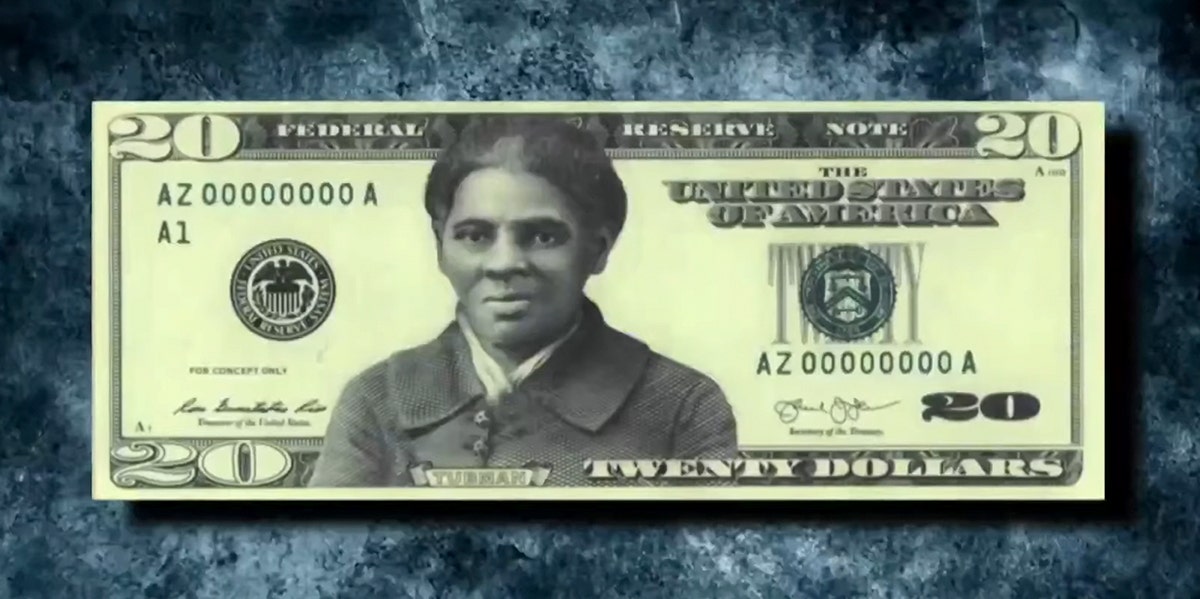Putting Harriet Tubman On The $20 Bill Isn't As Progressive For Black People As People Want To Believe
This isn't what we meant by racial change.
 YouTube
YouTube It’s been almost five years since it was originally reported that Harriet Tubman would be the face on the $20 bill and once President Trump took office in 2017, those plans were immediately put on the back-burner.
However, now that Joe Biden is President, it seems those plans are being brought to the table again — with the administration hurrying up the process to make it a reality.
Great news, right? Most people would assume that the Black community would be overjoyed at the announcement that a Black woman — formerly a slave — will be on the American dollar. And for the most part, that is a joy, and on a basic level, it does make me happy.
But, there’s also a bit of hesitance on part for what this means.
In April 2016, Ijeoma Oluo, author of So You Want To Talk About Race wrote an article for The Guardian about Harriet Tubman being on the $20 bill, and how it’s not enough.
“The image of Tubman on our currency as some sort of corrective action for centuries of oppression and subjugation, or as a symbol of how far we’ve come in ending racism, is more symbolic of our fundamental misunderstanding of race in America,” Oluo wrote.
And I agree with her that it's an empty gesture.
White people view the history of racism as a problem of the past. They think that putting Harriet Tubman on a bill — even though Andrew Jackson will still be on the back — is enough to pacify the Black community.
It also makes me think about the promises Biden made during his campaign run, and how he was going to right the wrongs when it came to racial inequality. But is this all he has? His rush to change the $20 bill seems like he’s trying to show the Black community that he meant everything he was saying.
But to be clear: this isn’t what Black people meant when we said we wanted accountability.
It’s the same thing that happened over the summer during the Black Lives Matter protests and civil unrest. Companies started recalling products like Aunt Jemima — when that wasn’t what the protests were about in the first place.
Yes, I’m glad people are starting to realize the racist past of some of our everyday things, like the racial undertones of Uncle Ben and Aunt Jemima, but taking things like that off of shelves or bringing racist images up-to-date isn’t suddenly the fix to four hundred years of oppression.
Malcolm X once said. “The white man will try to satisfy us with symbolic victories rather than economic equity and real justice.” And that is what is happening right now.
President Biden thinks Black people desperately need a $20 bill with Harriet Tubman when in reality, we want Harriet Tubman to be an entire history book instead of a footnote. We want Black history to be accurately told.
Harriet Tubman represents so much. She risked her life as an abolitionist. She freed thousands of slaves while conducting the underground railroad.
“We shouldn’t have to have Tubman’s face on the $20 bill to honor her. We should have been honoring her every day. Our children should have been learning about her outside of a paragraph read in February. We should have her image and what she stood for at the forefront of our consciousness. We should have been honoring Tubman’s commitment to justice every day in our actions and our words,” Oluo wrote.
This racial change that we want so badly isn’t going to come from a measly changed $20 bill.
It will start with education — and holding ignorant people accountable for their actions.
Nia Tipton is a writer living in Chicago. She covers pop culture, social justice issues, and trending topics. Follow her on Instagram.

